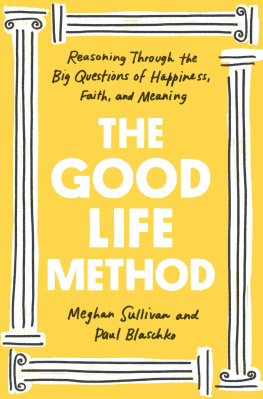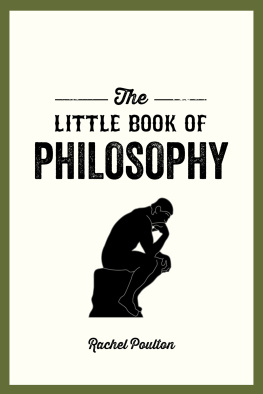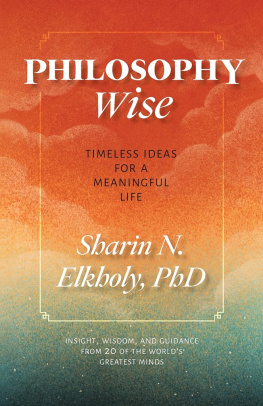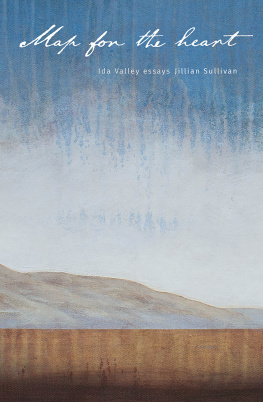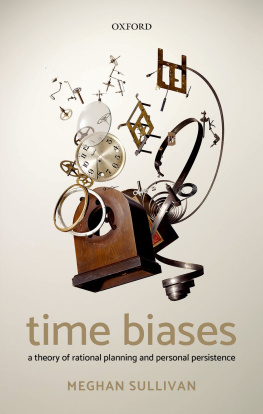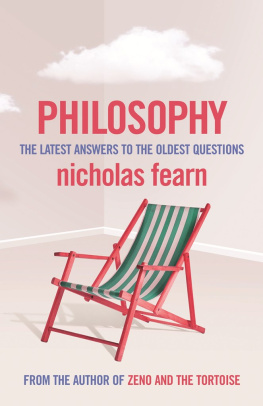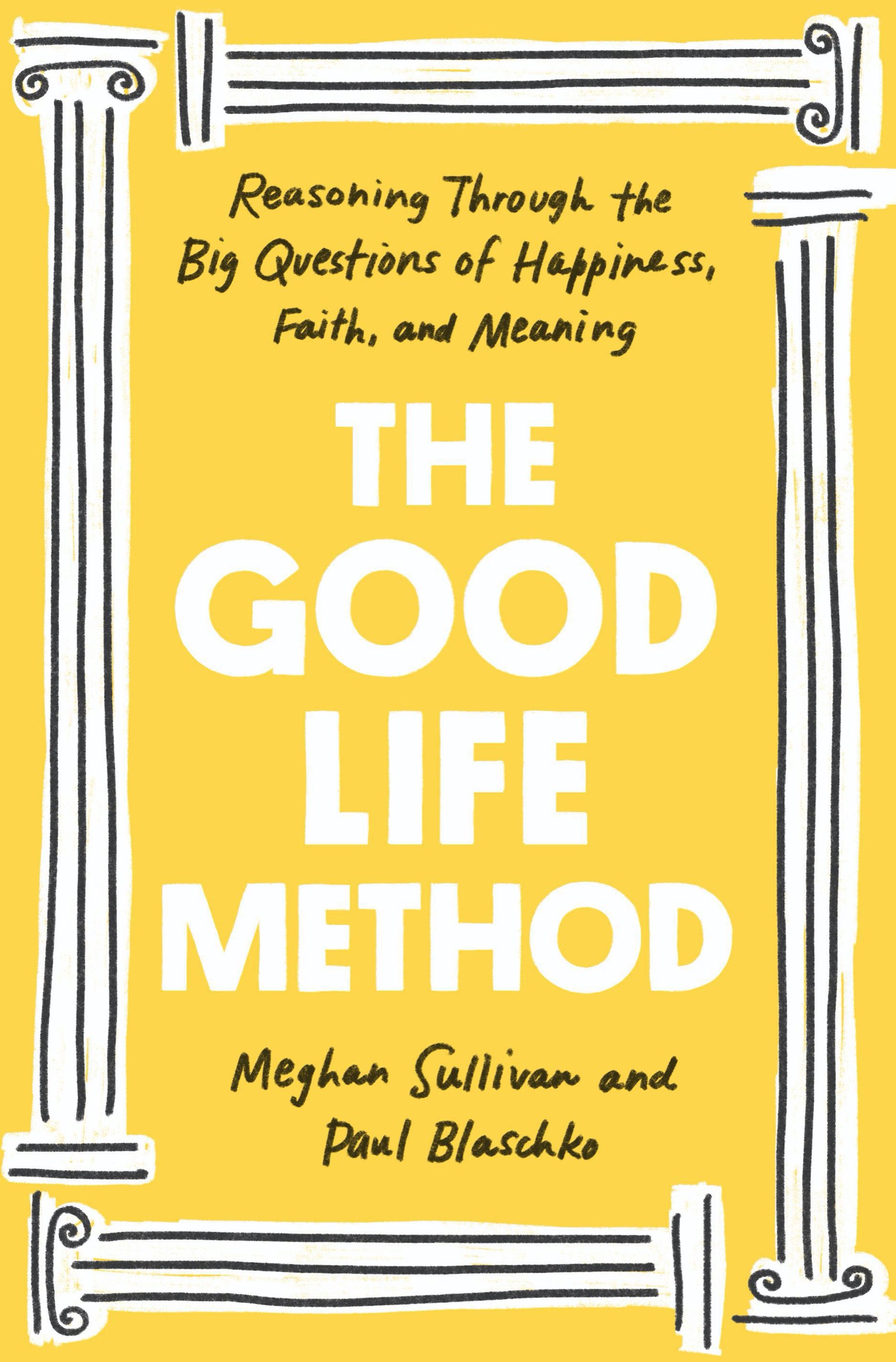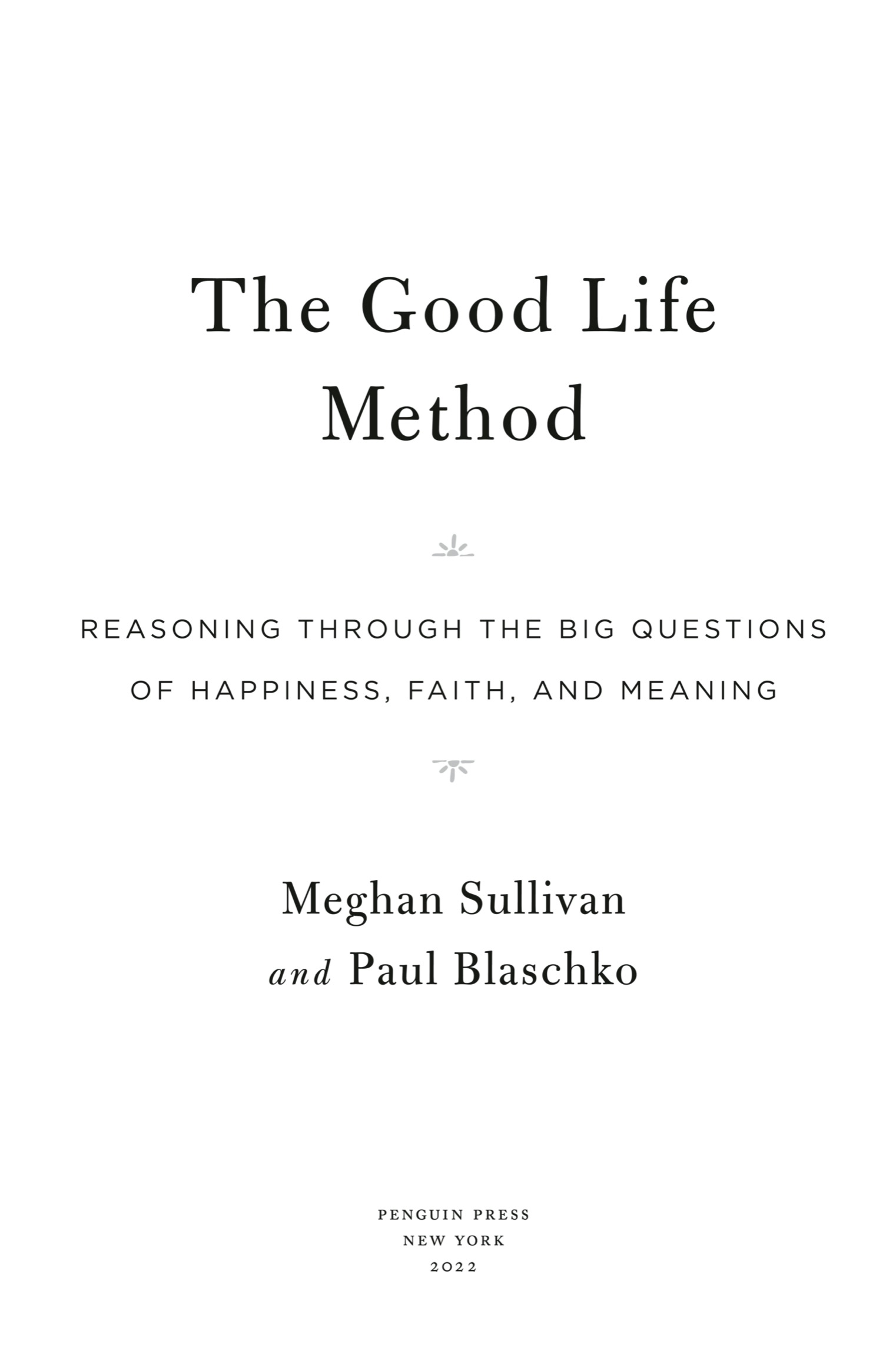PENGUIN PRESS
An imprint of Penguin Random House LLC
penguinrandomhouse.com
Copyright 2022 by Meghan Sullivan and Paul Blaschko
Penguin supports copyright. Copyright fuels creativity, encourages diverse voices, promotes free speech, and creates a vibrant culture. Thank you for buying an authorized edition of this book and for complying with copyright laws by not reproducing, scanning, or distributing any part of it in any form without permission. You are supporting writers and allowing Penguin to continue to publish books for every reader.
library of congress cataloging-in-publication data
Names: Sullivan, Meghan, 1982 author. | Blaschko, Paul Leonard, author.
Title: The good life method : reasoning through the big questions of happiness, faith, and meaning / Meghan Sullivan and Paul Blaschko.
Description: New York : Penguin Press, 2022. | Includes bibliographical references and index.
Identifiers: LCCN 2020054704 (print) | LCCN 2020054705 (ebook) | ISBN 9781984880307 (hardcover) | ISBN 9781984880314 (ebook)
Subjects: LCSH: Virtue. | Ethics. | Conduct of life.
Classification: LCC BJ1531 .S85 2022 (print) | LCC BJ1531 (ebook) | DDC 170dc23
LC record available at https://lccn.loc.gov/2020054704
LC ebook record available at https://lccn.loc.gov/2020054705
Cover design by Kaitlin Kall
Designed by Meighan Cavanaugh, adapted for ebook by Shayan Saalabi
pid_prh_6.0_138897311_c0_r0
From Meghan:
To all the students whove come with us on this journey and to all the ones I cant wait to meet.
From Paul:
To Shayla, Solomon, Maria, and Lydia. My goodness.
Contents
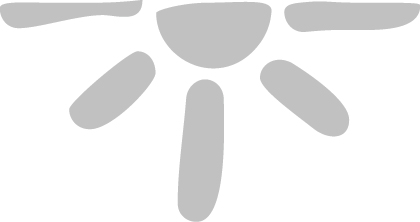
Introduction
Are you not ashamed of your eagerness to possess as much wealth, reputation and honours as possible, while you do not care for nor give thought to wisdom or truth or the best possible state of your soul?
Socrates, in Platos Apology
We all have goals. This trait is something that sets us apart from other animals: we are self-reflective creatures. We keep score with grade point averages, bank accounts, hours slept, or calories burned. And were constantly trying to improve. Our particular methods vary. Some of us keep journals or make pacts with friends to get better. Maybe you are the kind of person who writes down an annual plan in a leather-bound journal every January first. Maybe you just casually check in now and then with your partner to look at whether youve spread yourself too thin between family, work, and the long list of everything else. Some of us wait for a big turning point to redraw our life mapsa graduation, the birth of a child, a reorganization at work. Maybe a big crisis trips your planning switch.
We often take up these goal-setting missions as a way of responding to what we perceive to be our shortcomings. We try to build back better. Yet as we make progress on one part of our lives, inevitably something else changes. We think we are on track to assembling that better life, but then we find the pieces arent fitting together. We have to begin again. But where? In these moments we start to see the problem: setting and accomplishing goals is one thing, but where should our goals come from? What should we ultimately be aiming at?
We believe that there is a more sustainable way to approach this deeply human worka method for thinking about our goals that is among the oldest, the most holistic, and the most battle-tested: philosophy. You may not think of philosophy as being so practical. But many philosophers, from the ancients right up until the modern day, have seen the discipline as indispensable to the good life.
In the fourth century BC, Aristotle opened his course on happiness by telling students, We are conducting an examination... so that we may become good, since otherwise there would be no benefit from it. You might associate philosophy with studying very abstract theories of logic, human nature, the universe. But Aristotle thought he was teaching his students the most practical subject on earthhow they could become better at being human by learning to direct their lives toward worthy goals.
Following in Aristotles path, weve dedicated our careers to helping our twenty-first-century students view their good life problems through the philosophical framework he inspired, and it resonates with them deeply. If you read around in the roughly two-thousand-year history of philosophy, you discover a persistent theme of people trying to find a solid foundation for their goals, a vision that they can then use to direct their everyday lives.
In ancient Greek, a telos is an aim that gives meaning and direction to an activity. For teleological creatures like us, finding the right life goals, and figuring out how to accomplish them, is the essential human task. Aristotle thinks we are like archers, always trying to fix a far-off target in our sights. He called the goal eudaimonia (yoo-die-mo-nee-ahh). The Good Life.
Other ancient philosophers describe this fundamentally human task as joining up your circlesjoining your short-term plans with more essential goods; your present moment with your past and future; your own life with the lives of others around you; your current desires with a vision for how your life will all fit together into a coherent and meaningful whole. The Greeks and Romans thought that this urge to join up is what makes us different from all of the other animals: we have a capacity to see these connections in our lives and make adjustments to strengthen the links. And they thought that to undertake this work seriously, we need a lot of philosophical coaching. Socrates, Plato, Aristotle, the Stoics, Saint Thomas Aquinasand the philosophers who have continued their work in subsequent centurieshave all worked out proven methods for bringing direction to tumultuous lives. It is shocking how vibrant and relevant these time-tested guides still are today. Many of these philosophers lived their own lives during deeply volatile periods. They developed their theories precisely because the circles were getting hard to join up.
Philosophy has long been in the business of practical, timeless self-care. But in the modern world, when we are of a mind to work on our goals, we often turn to the newest research we can find. We buy popular business and positive psychology books, and search out diet and fitness plans to experiment with. If what were looking for is life-directing wisdomif we really want to make deep and lasting changes for the bettersome brief reflection is enough for us to realize that these arent the sources we should be seeking out. They often just add to our disorientation. Advice from a 1970s diet book (Avoid fat at all costs!) is completely different from what doctors recommend today (Skip the sugar if you want to lose weight!). Happiness advice from psychology similarly shifts directions every few years. In the 1980s, the trend was to promote self-affirmationaccept and love whoever it is that you happen to be. In the last decade, the advice was to develop grit insteadbuckle down and toughen up. And in our own time, all of this guidance seems... insufficient to the moment.
Sometimes were not even sure what sources are worth consulting; we feel stuck. Do you really need an ambitious career to be fulfilled? How involved should you be in your childrens lives? How do you in particular contribute to something bigger? You might be at sea on how you could even settle such questions. Or maybe you recognize that your life is wonderful, but you simply arent able to say why. This need for clarity is itself a problem when you try to talk to your friends, your parents, your spouse, or your kids about who you are and why you make the choices you do.

